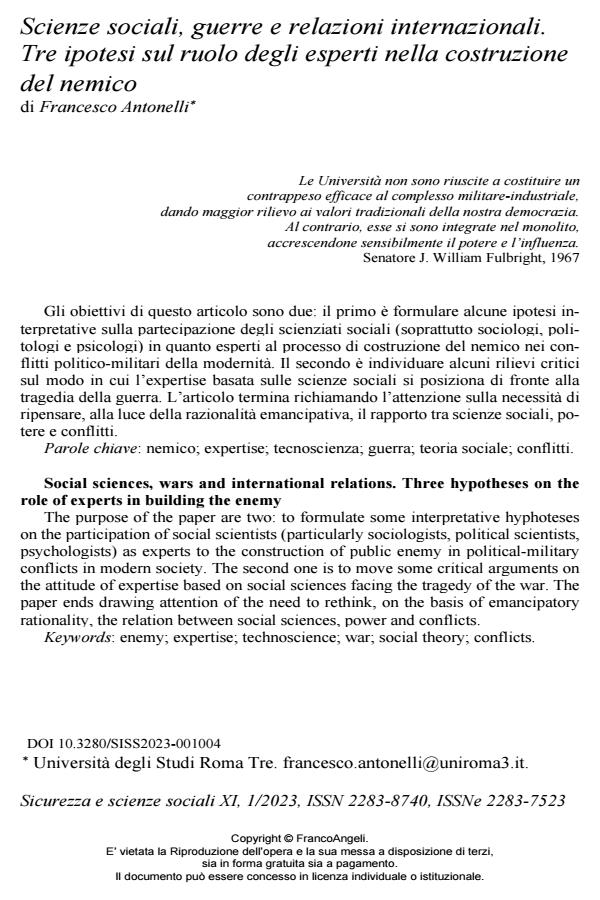Social sciences, wars and international relations. Three hypotheses on the role of experts in building the enemy
Journal title SICUREZZA E SCIENZE SOCIALI
Author/s Francesco Antonelli
Publishing Year 2023 Issue 2023/1
Language Italian Pages 15 P. 28-42 File size 204 KB
DOI 10.3280/SISS2023-001004
DOI is like a bar code for intellectual property: to have more infomation
click here
Below, you can see the article first page
If you want to buy this article in PDF format, you can do it, following the instructions to buy download credits

FrancoAngeli is member of Publishers International Linking Association, Inc (PILA), a not-for-profit association which run the CrossRef service enabling links to and from online scholarly content.
The purpose of the paper are two: to formulate some interpretative hyphoteses on the participation of social scientists (particularly sociologists, political scientists, psychologists) as experts to the construction of public enemy in political-military conflicts in modern society. The second one is to move some critical arguments on the attitude of expertise based on social sciences facing the tragedy of the war. The paper ends drawing attention of the need to rethink, on the basis of emancipa-tory rationality, the relation between social sciences, power and conflicts.
Keywords: enemy; expertise; technoscience; war; social theory; conflicts.
Francesco Antonelli, Scienze sociali, guerre e relazioni internazionali. Tre ipotesi sul ruolo degli esperti nella costruzione del nemico in "SICUREZZA E SCIENZE SOCIALI" 1/2023, pp 28-42, DOI: 10.3280/SISS2023-001004